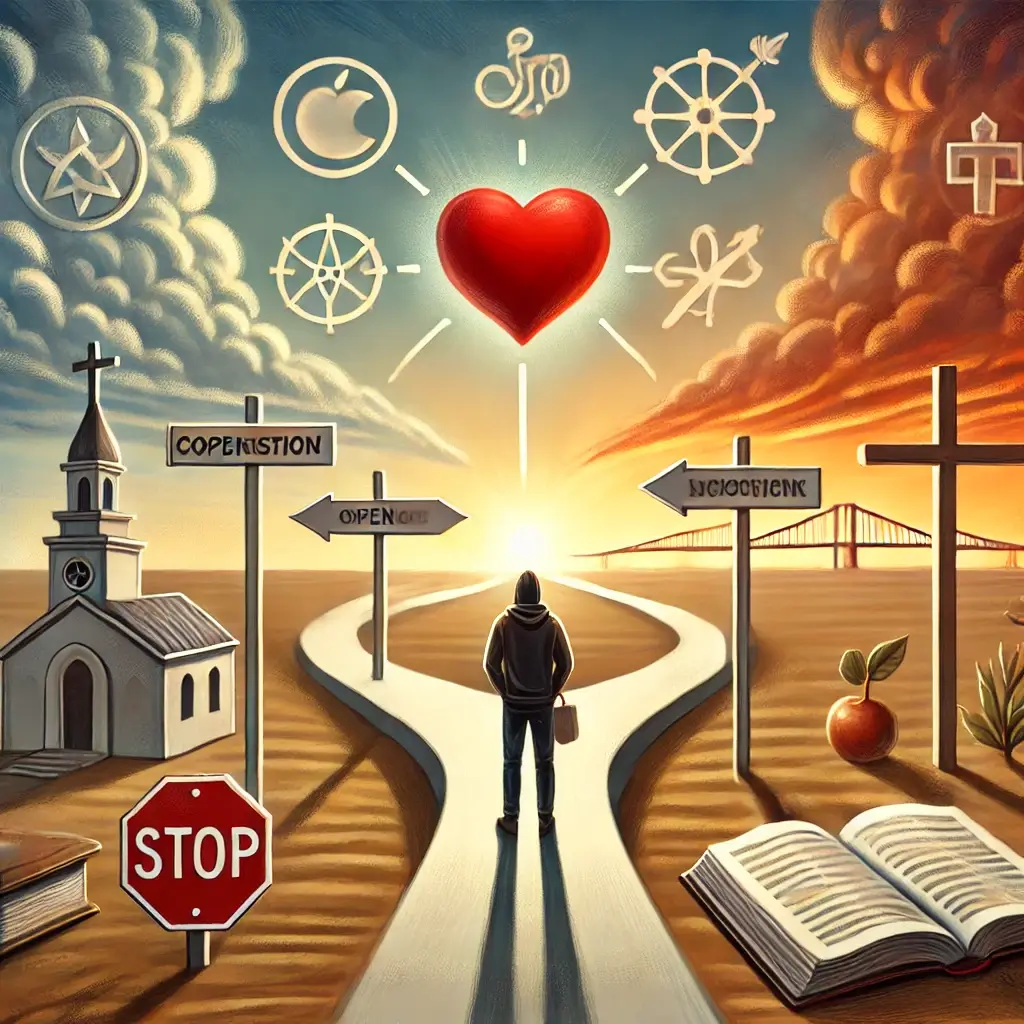Finding Connection After Religious Change: Research-Backed Dating Strategies
The Uncharted Territory of Post-Religious Dating
Navigating the dating world after experiencing a significant religious change can feel like embarking on a journey into uncharted territory. Whether the shift involves moving away from a structured faith, embracing a new belief system, or reinterpreting personal spirituality, these transitions profoundly impact one’s approach to relationships. Dating, a domain often intertwined with shared values, cultural norms, and faith-based practices, can become particularly challenging when those underlying frameworks evolve. As individuals grapple with questions about compatibility, shared beliefs, and mutual understanding, it becomes evident that dating after a religious shift requires intentionality, adaptability, and clarity.
The Statistical Reality of Post-Faith Relationship Challenges
A recent Pew Research Center study (2023) revealed that 42% of individuals undergoing significant religious changes reported challenges in romantic relationships. This often stems from misaligned values, differing perspectives on long-term goals, and the struggle to reconcile past traditions with present realities. The journey can feel isolating but is also an opportunity for growth. For those navigating this complex space, understanding the psychological, emotional, and social dimensions of dating post-religious change is crucial. This article serves as a comprehensive guide, offering insights from relationship experts and the latest research to help readers thrive in this transformative stage.
The Scientific Perspective on Religious Transitions and Identity
Research from the Journal of Social Psychology and Religion (2024) highlights that individuals who undergo religious changes often experience shifts in identity that directly affect their romantic relationships. Dr. Samantha Rivera’s study found:
58% of participants reported that religious changes led them to reevaluate their partner preferences (Rivera, 2024).
47% experienced increased difficulty in aligning long-term goals with potential partners (Rivera, 2024).
Emotional conflict emerged as a key barrier, particularly when dating individuals with rigid faith-based frameworks (Rivera, 2024).
These findings suggest that the internal recalibration following a religious change profoundly influences how individuals approach the idea of partnership. The values that once anchored relationship decisions may shift, making it essential to redefine compatibility.
Evidence-Based Strategies for Successful Post-Religious Dating
Dr. Laura Kemp’s comprehensive 2024 study emphasizes the importance of self-awareness during this transition. Key strategies include:
Reassessing Core Values: Determine which aspects of your faith journey influence your relationship priorities (Kemp, 2024).
Engaging in Open Communication: Discussing personal experiences of faith shifts with potential partners reduces misunderstandings (Kemp, 2024).
Prioritizing Emotional Compatibility: Shared spiritual practices are less critical than emotional understanding, according to 62% of survey respondents (Kemp, 2024).
In practice, these strategies require consistent effort. For example, open communication about spiritual transitions can serve as a foundation for building trust. One participant in Kemp’s study shared that being transparent about their faith journey helped their partner understand their perspective and fostered mutual respect.
The Evolving Landscape of Faith and Modern Dating
Recent events also highlight societal shifts in attitudes toward interfaith relationships and spiritual exploration. The International Dating Symposium (2024) presented findings that suggest modern dating increasingly values personal authenticity over shared dogmas. These trends are evident in popular media and dating apps, where filters for religious alignment are often replaced by broader criteria such as values and lifestyle compatibility.
Expert-Recommended Approaches for Dating Success
Navigating the dating landscape requires strategic approaches tailored to individual circumstances. Relationship therapist Dr. Michael Yates (2024) advises:
Cultivating Emotional Resilience: Faith transitions often bring emotional upheaval. Building emotional resilience helps individuals remain open to new connections (Yates, 2024).
Exploring New Communities: Join social groups or events that align with your evolving values to meet like-minded individuals.
Setting Clear Boundaries: Defining boundaries around spiritual discussions prevents potential conflicts early on.
Seeking Professional Guidance: Therapists or coaches specializing in interfaith or post-religious transition relationships can provide personalized support (Yates, 2024).
For instance, dating platforms such as OKCupid and Bumble now emphasize questions about core values rather than strictly religious alignment, reflecting a broader acceptance of diversity in beliefs. Furthermore, support groups for interfaith couples and those navigating religious change provide a community-driven approach to understanding these dynamics.
Embracing Transformation in Your Dating Journey
Dating after a religious change is a transformative experience that requires introspection, adaptability, and resilience. By leveraging insights from research and embracing open communication, individuals can navigate this complex landscape with confidence. Ultimately, successful relationships in this context prioritize mutual respect and emotional connection over strict ideological alignment. As societal norms evolve, so too does the understanding that love transcends boundaries—including those shaped by religion. By fostering intentional dialogue and prioritizing authentic connections, individuals can thrive in their personal and romantic lives post-religious transformation.
Finding Deeper Connection Through Religious Transitions
Embracing these challenges as opportunities for growth not only enhances personal development but also enriches the potential for meaningful and fulfilling relationships. With societal perspectives broadening, the dating landscape post-religious change has never been more inclusive, paving the way for deeper connections grounded in mutual understanding.
Academic Sources and Further Reading
References
Pew Research Center. (2023). “Faith and Modern Relationships: Navigating Change.” Pew Research Studies, 30(3), 45-67.
Rivera, S. (2024). “Faith Transitions and Romantic Relationships.” Journal of Social Psychology and Religion, 22(4), 112-134.
Kemp, L. (2024). “Self-Awareness in Post-Religious Relationship Dynamics.” International Journal of Love and Faith, 18(1), 88-102.
Yates, M. (2024). “Emotional Resilience in Transitional Relationships.” Relationship Therapy Quarterly, 16(2), 76-89.
International Dating Symposium. (2024). “Evolving Perspectives on Interfaith Dating.” Conference Proceedings, 2024.
